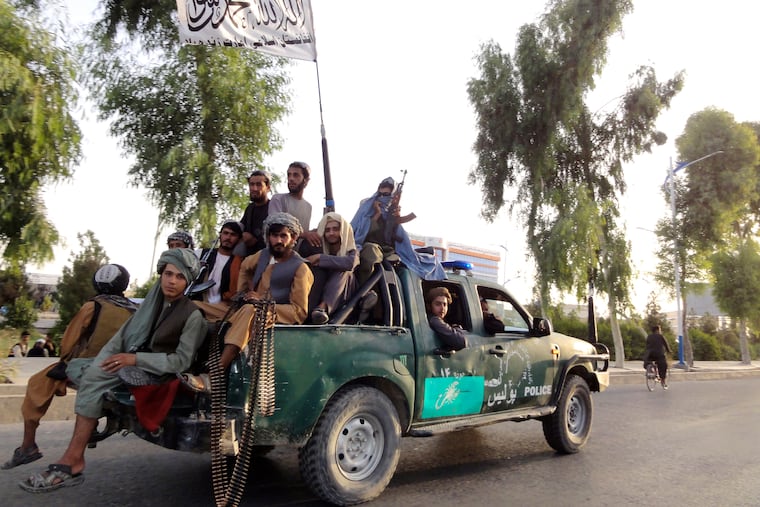The local lesson from Afghanistan’s fall | Editorial
We are confronting the incredibly painful moment of looking back with the realization that 20 years of investment in lives and dollars helped create, rather than prevent, a calamity.

Two years ago, lawmakers in Harrisburg were preparing to eliminate Pennsylvania’s General Assistance program, which had a budget of $24 million and helped about 10,000 state residents by sending them each a $200 check every month.
Before leading the charge to repeal the program in 2019 — to the dismay of this board — a House Republican said the state needs to “put more money into programs that are proven to help people in need.”
In light of global events, the arguments made by lawmakers that spring are illuminating. While social programs like General Assistance that help the poor, or gun violence prevention programs that utilize public health approaches, often need to prove their efficacy, military and policing budgets — especially before last summer’s protests — don’t receive the same scrutiny.
» READ MORE: The horror of Afghan women abandoned by America’s troop pullout | Trudy Rubin
Consider Afghanistan. Over the past two weeks, the world has been witnessing a massive policy failure: Nearly 20 years of war, about a trillion dollars, and thousands of casualties weren’t enough to ensure that Afghan soldiers would be able to hold off the Taliban without American boots on the ground for even 14 days.
On Monday, the day after Afghanistan’s capital Kabul fell to the hands of the Taliban, President Joe Biden’s national security adviser Jake Sullivan acknowledged the administration’s disastrous miscalculation, telling Today that “no amount of training, equipping, or money or lives lost” was going to be enough to change the result that we’ve all been witnessing.
Considering the inevitability of the outcome expressed by Sullivan, the decision to withdraw American troops seems even more justified. That doesn’t minimize the humanitarian crisis unfolding in Afghanistan — nor the grave threats still facing that war-weary nation’s people, especially girls and women.
Some responsibility lies at the feet of the president, particularly the failure to swiftly secure visas for translators and other contractors who helped American soldiers and now have a target on their backs. While this is damage that can’t be reversed, some suffering can be prevented by putting forth additional resources to help those Afghans come to the United States. Philadelphia, a sanctuary city, should welcome refugees from Afghanistan if that is an option.
» READ MORE: Seven are killed in the Kabul airport evacuation chaos, U.S. officials say
Also sharing the blame is Congress, which for two decades opened its purse and wrote blank checks to underwrite an aimless, endless war that was all but doomed to fail. Two years after the repeal of the General Assistance program, it’s difficult not to wonder how the money spent on Operation Freedom’s Sentinel could have been used to help cities like Philadelphia address gun violence, poverty, and housing affordability, instead of setting the Afghans up for the catastrophe that has been the last two weeks.
Domestically, and locally, one lesson from the fall of Afghanistan needs to be a recalibration of policy assumptions. The same principles that drive funding decisions based on the likelihood of effectiveness should extend not only to programs that expand the social safety net but to other expenditures as well — including the military. Otherwise, we confront the incredibly painful moment of looking back with the realization that 20 years of investment in lives and dollars helped create, rather than prevent, a calamity.